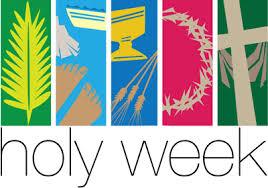Sermon - Apr 10, 2022 Parade, or protest march.

Parade, or protest march.
It starts with a borrowed donkey. A strange request, isn’t it; go to the next village, find a colt that’s never been ridden, and walk away with it. If anyone asks, just tell them the Master needs it. And since this is the gospel, things play out exactly as Jesus has described. Convenient.
Perhaps people were less rigorous about ownership…or more generous when considering the needs of strangers…or maybe, it’s something else.
The whisper of prophecy is in the air - a sense of excitement (or foreboding - according to your point of view) fills the countryside around Jerusalem - fills the air around Jesus. And if it’s prophecy they want, that’s what they’ll get.
Except this prophesied parade is a little odd, isn’t it?
Coats cover the road - no sign of a palm branch - it feels like a very spontaneous thing. It could be satire - a send up - is it a celebration? Is it a protest march?
We have more than a passing acquaintance with this sort of thing; Stanley Cup celebrations spill into the streets and the euphoria turns into front page news of the wrong kind. Or folks who want to draw attention to the responsibility that the most prosperous nations have to the rest of humanity (whether it’s the G-7 or the G-8 or the G-20) There always seems to be a disaffected element lurking on the edge of the crowd, ready to riot.
And then there are more recent examples; folks who may have had legitimate questions about the actions of governments to the pandemic have been co-opted into a movement grounded in conspiracy and hatred. It is hard to draw a line around the current situation and separate fact from fiction. Emotion and old animosity obscure the original argument. And suddenly, we’re back to Luke’s gospel.
The people are eager for change. The Romans are the Romans, and the old guard - the religious leaders, in this case - have joined the opposing team (or so it must have seemed.) Jesus has been criss-crossing the countryside, healing and teaching and proclaiming a kingdom like no other. The primary argument is that God is still relevant - God is still present - God still matters in 1st Century Palestine. The emotional response of the crowd around the disciples to Jesus’ ‘argument’ is to declare Jesus’ ‘the one!’
Anointed - Messiah - king; the one to liberate us, to set himself against all that is wrong with the world in the moment, and start a brand new thing. Even now we use that language - we share that longing - but the practical application of these ideas, that’s another thing altogether.
Talk of a new king when the old guard is still in charge? That’s dangerous.
Expecting Jesus to alter the government and the civil infrastructure by revolution? That’s the point well missed.
The emotions and old animosity gets the better of this crowd too, and they are shouting praises to this new (reluctant) king, daring the authorities to act.
Well, action is what they get.
A call for order doesn’t help much. Jesus knows that change is coming - and he knows, that while it won’t necessarily be the overthrow of the government, there will be fundamental changes to the way people encounter their own (and their neighbours) humanity, and in that humanity, the power of God.
The authorities, seeking control, demand Jesus exercise control over the crowd;“Make them stop, teacher!”
‘Nothing can stop this’, says Jesus, who knows the work of God when he sees it.
Now - hearing this from Jesus - gaining a sense of inevitability as they march towards Jerusalem - surely those who were once undecided would finally put their hearts into the moment. The cheers would get louder, the dancing - the hoping - the sense of impending victory must have been palpable…but the change that Jesus represented and the change the people wanted are not the same.
Most of the crowd are convinced that they are fighting to ‘get their country back.’ To ‘regain control,’ to rule themselves again - this parade to honour Jesus also had a hint of nationalism in it. Soon this will be ours again…
Jesus cares nothing for nationalism - Jesus doesn’t promise to rule a kingdom of soil and trees - of produce and resources; Jesus is on a mission to bring hearts and minds back to God. A kingdom without boundaries ruled by the one who created it all.
These divergent ideas cannot hold. A breaking point is coming, and there will be another parade. Voices will be raised - this time, in ‘self-defence.’ The crowd will revert to a fearful position, and renounce the one they once hailed as king. The parade will continue, from the city centre to the killing ground, and it will seem like nothing has changed. But that is a story for another day.
For today, let’s consider that every movement - every call for change - every ‘Jesus moment’ balances on a knifes edge. A mixed message or a misinterpretation can send the whole enterprise crashing off in a dangerous direction. Yet even so, God stands ready to redeem our missed opportunities, and help us recover from our self-made disasters. That truth is what rests at the centre of the gospel. It is the good news that waits for us at the end of this perilous, passion-filled week.
 St. John's
St. John's




